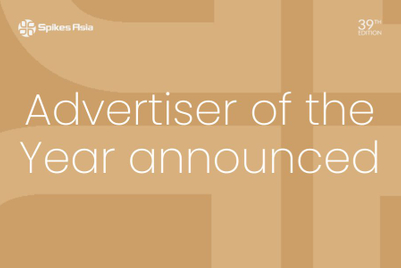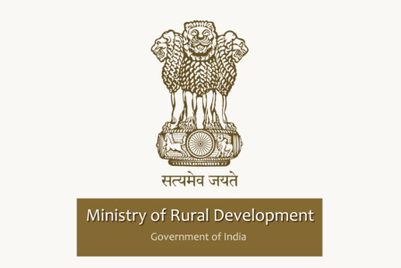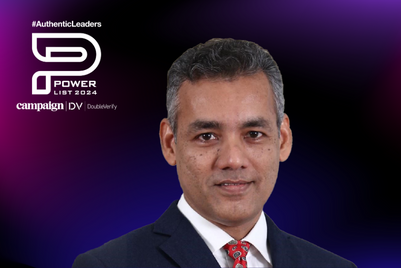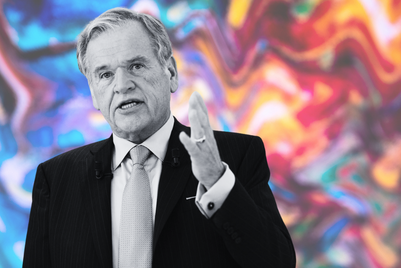
It seems crypto marketers will stop at nothing to stand out in an increasingly competitive space, even falsifying links to boy bands. Just this month, BitGet, a Singapore-based digital currency exchange, was suspended by The Monetary Authority of Singapore after promoting the digital currency Army Coin, named after the South Korean boy band BTS’s followers.
In October, BitGet was threatened with legal action by the BTS management company, Hybe Corporation, for advertising Army Coin using an unauthorised image of the band and for promoting false information that the coin was created for BTS and intended to maximise the band's profits, which Hybe labelled as a “scam”.
Boy band-linked crypto scams aside, interest in crypto currency investing has skyrocketed across Asia in the past year, growing by over 700%, according to Chainalysis' Global Crypto Adoption Index. However, along with increased interest and competition from a growing horde of new cryto startups desperate to differentiate themselves from the pack, a worrying rise in the number of false claims and fraudulent pitches in crypto marketing has emerged, leading many to feel tighter scrutiny and regulation of crypto ads is necessary.
“Unfortunately, in all emerging industries, there are always snake-oil salesmen, scams and dishonest people looking to make a quick buck,” says Samantha Yap, founder and CEO of Yap Global, an international public relations firm that works with companies in the cryptocurrency and decentralised finance (DeFi) sectors.
One such scam called SQUID was recently promoted as a play-to-earn cryptocurrency inspired by Netflix’s international hit TV show Squid Game, but it turned out to be a US$3.38-million “rug pull” scheme—whereby crypto scammers abandon a project and run away with investors' funds.
"Scams like SQUID and those promoting them greatly diminishes the credibility of the industry and gives it an excessive bad name, which shifts the focus away from the potential and benefits to society that Crypto, Blockchain, and DeFi can bring," says Yap.
Yap believes that having proper regulations and bodies assess the authenticity of crypto advertisements would greatly reduce the ease and likelihood of malpractice and exploits. "This would not only improve the safety and security of users but also improve the credibility and reputation of the industry as a whole."
Many others agree that tighter regulation is needed. In India, the country's Advertising Standards Council (ASCI) is in discussions with the government to refresh guidelines related to cryptocurrency advertising, after public anger was sparked by a flurry of crypto ads that appeared on TV, print and on social media. Netizens have called into question some of the claims in the ads offering wild returns, and questioned whether they came with adequate disclaimers.
Among the ads that sparked anger on social media was by Bitbns, a crypto exchange which offers a variety of crypto investment products that it calls “fixed deposits”. In the advertisement, which was aired during the T20 World Cup India-Pakistan cricket match, the company promised four times the returns of a traditional fixed deposit.
After an online backlash, Gaurav Dahake, CEO of Bitbns, admitted that the underlying volatility in cryptocurrencies was not factored into the claim of 4x returns.
In response to complaints about deceptive crypto ads, Subhash Kamath, the chairman of Advertising Standards Council of India (ASCI), tells Campaign Asia-Pacific that "we're currently engaged with crypto industry representatives as well as key government departments on whether specifically crypto advertising needs special guidelines to be issued."
Kamath adds that "provisions of most existing rules, regulations and guidelines require ads to be honest and transparent".
"Hence any ad making a false or fraudulent claim is already in violation of such rules. In India, this would come under the ASCI code as well as the Consumer Protection Act. There may be room to interpret or clarify these rules more specifically for crypto ads, given that it’s a new category and not fully understood. So we are now engaging with the industry as well as government stakeholders to determine ways in which the crypto industry can comply with the ASCI codes," Kamath says.
Unfortunately, in all emerging industries, there are always snake-oil salesmen, scams and dishonest people looking to make a quick buck.
—Samantha Yap
Despite tighter regulation and the possibility of further crackdowns on the sector, similar to how China outlawed all crypto-transactions back in September, many remain optimistic about the future of crypto and crypto marketing.
"With anything new, you’ll see regulations changes over time as new consumer and corporate behaviours emerge," says Tessa Conrad, head of innovation at TBWA Asia. "This is the same for how social media and digital products have had their regulation change over time—it doesn’t stop the product from taking off, but instead changes what it’s able to be used for."
Conrad, who works with crypto and metaverse clients including Cabital and Altava Group, does support advertising bodies taking more steps to ensure crypto is ethically marketed—as long as it’s contributed to by people that really understand the space. She also feels that agencies who get involved with helping to advertise crypto services should just stick to basic marketing standards around advertising in an ethical fashion.
"Like anything, it requires being responsible in how you’re marketing," says Conrad. "The end decision is up to the consumers—but, knowing how volatile crypto can be, there’s some common sense and a good deal of education that needs to be part of the offering."
Samantha Yap, whose PR and communications agency Yap Global has worked with crypto, digital asset and DeFi companies and projects in Singapore, Hong Kong, Taiwan, and Thailand, to name just a few, vets all clients before taking them on and believes emerging technologies make the vetting process easier to do.
"A lot of our clients actually come via referrals, and I include my team members in the vetting process—for both the project and its members as well," says Yap. "One of the benefits of being in this industry is that a lot of information is actually transparently and readily available on the Blockchain, with sites like CoinGecko and DefiLlama providing essential statistics like total value locked (TVL), token prices and growth." Yap says these sites facilitate fact-checking, truthfulness and credibility of potential clients.
"Besides these metrics, we also check on the size of their community and following, IE, how many Twitter followers they have, how active the engagement with investors and token holders are."
At least for now, it doesn't seem like crypto is going away anytime soon. For every country that’s taking a more cautious view of crypto, there’s one that’s trying to dive all in. And for crypto marketers, as tighter regulation of crypto ads seems inevitable, hopefully this will bring clarity in how to ethically market crypto services and prohibit the less scrupulous from resorting to outright false claims and fraudulent pitches in their campaigns.
(This article first appeared on Campaign Asia.com)


.jpg&h=334&w=500&q=100&v=20250320&c=1)

.jpg&h=334&w=500&q=100&v=20250320&c=1)

.jpg&h=334&w=500&q=100&v=20250320&c=1)



.jpg&h=334&w=500&q=100&v=20250320&c=1)
.jpg&h=334&w=500&q=100&v=20250320&c=1)
.jpg&h=268&w=401&q=100&v=20250320&c=1)



.jpg&h=268&w=401&q=100&v=20250320&c=1)
.jpg&h=268&w=401&q=100&v=20250320&c=1)


